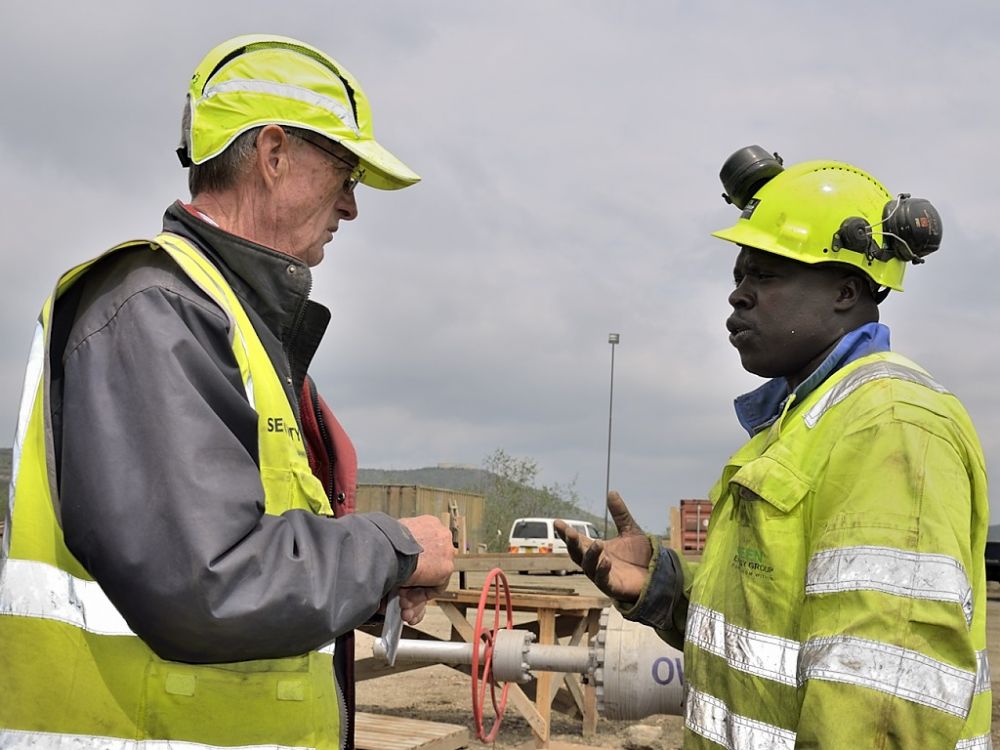Transformational change from technology transfers
The year 2015 has been groundbreaking for finding solutions to the challenges facing our global environment. The Financing for Development and Sustainable Development Goals processes sent a clear message that the global community is serious about acting in a meaningful way to address sustainability issues, and the long-term commitments delivered by the UNFCCC Paris Agreement will enable nations and institutions alike to act collectively and decisively on climate change.

This year also marks the second full year of operation of the Climate Technology Centre and Network, one in which we began to deliver on the promise of the UNFCCC Technology Mechanism to enable the transfer of clean technology to the developing world.
Private sector solutions
The CTCN is the bridge between the technology needs identified by the developing world and the private sector innovators and civil society experts designing and implementing solutions to address these needs. The INDC Synthesis Report released at the end of October 2015 reaffirms that we can and must work together to deliver answers for the needs of developing countries, and that the potential exists to turn these opportunities into tangible results on the ground.
That is why we work at the grassroots, mobilising targeted expertise, information and technical assistance to address identified gaps and to enhance the ability of individual countries to implement technology solutions, facilitate the deployment of climate technologies and fulfil their obligations under the Convention.
In October 2015 we registered our 137th National Designated Entity (NDE), the national focal point that ensures country-level ownership and alignment of our activities with identified national climate change priorities. NDEs work with partners at the local and national level to channel requests for technical assistance through to the CTCN and our consortium experts, then with members of our network to implement robust solutions to address technology needs and gaps.
Our network now numbers over 100 stakeholder organisations from academia, the private sector and research institutions
Our network now numbers over 100 stakeholder organisations from academia, the private sector and research institutions, with expertise that spans the full spectrum of climate technology research, assessment, policy and implementation.
CTCN uses a tailored country-driven approach to its activities that builds on the findings of national reports including Intended Nationally Determined Contributions (INDCs), National Adaptation Plans (NAPs), Technology Needs Assessments (TNAs) and Technology Action Plans (TAPs) to design solutions that address the specific needs and conditions of developing countries and reflect their national sustainable development strategies, priorities and initiatives. Our partners’ diverse geographical and technical expertise enables the CTCN to quickly adapt its capacity building offering to different country contexts in terms of institutional structures in the public and private sectors, existing capacities, the state of technological development and vulnerabilities to climate change.
Getting work done
- In Afghanistan, CTCN is training decision-makers to identify technology needs, develop bankable proposals and identify sources of funding and to engage effectively in COP21 negotiations, especially on those aspects related to climate technologies.
- In Bhutan, CTCN is working to develop and deliver public transport management and operations training for public transport officials, managers and private passenger bus operators; as well as training on climate change, vehicular emissions and use of emissions testing equipment.
- CTCN is responding to three individual requests for technical assistance in Colombia, one of which includes providing guidance in the deployment of an alternative, municipal solid waste (MSW) treatment plant in the city of Cali as a pilot project for the Colombian Solid Waste Nationally Appropriate Mitigtion Action (NAMA).
- CTCN assistance is supporting governmental agencies in Cote d’Ivoire on the development of a national environmental information system to collect, monitor and utilise data related to climate change. It is also supporting the development of an air pollution reduction strategy in Abidjan district.
- In Dominican Republic, the CTCN is working to provide technical assistance that will support the development of a NAMA enabling the deployment of energy-efficient lighting technologies.
- In Iran, the CTCN is supporting the development of the country’s first photovoltaic (PV) manufacturing plant and working to build the necessary associated capacity of the national photovoltaic industry. In addition, Iran has made significant progress towards creating a regulatory environment to support energy from Combined Heat and Power (CHP) technologies, including Micro Combined Heat and Power (MCHP) at the household level, as a means of reducing energy consumption and replacing conventional energy supply infrastructures. However, Iran lacks a sufficient number of domestic manufacturers of CHP technologies. CTCN is providing technical assistance in the development of a strategy to create an investor-friendly environment for purchasing both CHP and MCHP technologies for technology transfer.
- In Namibia, CTCN is providing technical assistance to identify and prioritise climate change adaptation technologies for addressing water scarcity.
- The CTCN is also providing assistance to Pakistan to implement its Technology Need Assessment and to Uganda to consider utility scale geothermal energy.
- In Vietnam, CTCN is supporting bio-waste conversion projects through advice on selection of appropriate technology options for paddy drying, briquette production and combustion and capacity building in business plan development and implementation.
These activities all serve to enhance action on technology transfer and enable economic transformation, particularly in lower-income countries. There is a need to channel innovation and empower domestic actors, expanding access to knowledge and best practice to deliver tailored results at the national and regional level. While our Network has grown strongly through the year and is undertaking work that will increase the uptake of climate technology, it will also serve to contribute to capacity retention at the national level.
These activities all serve to enhance action on technology transfer and enable economic transformation
With that objective of capacity retention in mind, the CTCN launched an Incubator Programme for Least Developed Countries this year to help NDEs better identify, develop and use climate technologies, and leverage the full scope and strength of the CTCN network. Twelve countries are currently taking part, and plans are to expand this programme in 2016.
Building and leveraging regional networks
The CTCN supports countries across all stages of the technology cycle: from identification of technology needs, through assessment, selection and piloting of technological solutions, to their customisation and widespread deployment. To that end we have organised workshops across the globe, assembling NDEs with civil society and private sector experts at events in Africa, Asia, the Caribbean, Eastern Europe, Latin America, and the Middle East.
These forums do not just match needs with solutions, but provide an opportunity to forge lasting relationships, as well as to build upon the extensive regional work already taking place under the auspices of our hosting organisations UNEP and UNIDO. Each of these organisations have made their significant networks, experts and experience available to the CTCN and indeed to the Technology Executive Committee as well, and these partnerships will contribute more actively to our service offering in the coming year.
CTCN will be enhancing its collaboration with regional development banks and finance experts
Developing, deploying and transferring low-carbon technologies and overcoming related investment challenges is a crucial issue for climate change as well as energy and economic policy. Recognising the transformational nature of the change that needs to take place over the coming decade, the CTCN will be enhancing its collaboration with regional development banks, finance experts such as CTI-PFAN and the UNFCCC Financial Mechanism to provide technical assistance at scale that supports national and regional objectives in the area of climate change technology.
Since its launch in 2014, the Climate Technology Centre and Network has focused on enabling the transfer of climate technologies to match the needs of developing countries. We have expanded the coverage of our global network of partners and solution providers, and will be actively linking up with existing expert networks both within and outside the United Nations family to add capacity and ramp up our service offering to match the scale of the challenge at hand.
We look forward to another year of building on this platform of success, and in working with developing country, civil society, finance, private sector and research partners to implement solutions in support of the lofty objectives of the Paris Agreement.








